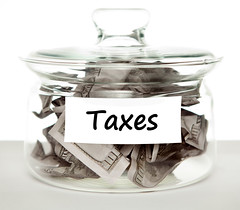 Many people have concerns about the health insurance tax. How will you be able to pay for it? Will everyone have to pay it? There is a lot of misinformation out there. Here are just the facts about the health insurance tax.
Many people have concerns about the health insurance tax. How will you be able to pay for it? Will everyone have to pay it? There is a lot of misinformation out there. Here are just the facts about the health insurance tax.
This week, the Supreme Court upheld the Affordable Care Act, or ACA. It also upheld the individual mandate, the most controversial portion of the ACA. The individual mandate requires every American to have health insurance coverage in 2014. Those who choose not to buy health insurance will have to pay what the Supreme Court has officially defined as a tax.
Some people are confused about how this tax will affect them, and their families. Here are the facts about the tax, and how it will affect you, your family, and your health insurance coverage.
First, I want to clarify the individual mandate. This law requires you to have health insurance coverage in 2014. It does not require you to go out and purchase a different insurance policy if you already have health insurance coverage. You will not lose your health insurance coverage as a result of the Affordable Care Act.
If you have health insurance coverage right now, there is a simple way to avoid having to pay the tax. Just keep paying your premiums on time. Don’t send an official letter to your health insurance company that states that you want to cancel the policy. This will ensure that in 2014, you will still have the same health insurance plan that you have right now. People who have health insurance coverage in 2014 will not have to pay the tax.
What if you currently lack health insurance coverage? One option is to see if you can find affordable health insurance coverage before 2014. I highly recommend that you seek the assistance of an insurance broker for this. It worked for me!
The other option is to wait until your state’s health insurance exchange is operational. All states are required to have a health insurance exchange that can be accessed by people who need to buy health insurance in 2014. Small businesses can also use the exchanges to find affordable health insurance for their workers. The exchanges will help you to find affordable health insurance and will also let you know if you qualify for Medicaid.
This means that the other way to avoid having to pay the tax is to use the health insurance exchange and to buy an affordable health insurance plan. People who are covered by an employer sponsored health plan, an individual plan, or a public plan such as Medicare or Medicaid will not have to pay the tax.
What if you still can’t afford to buy health insurance? In 2014, households that have an income of less than 400% of the federal poverty level will be eligible for a subsidy in the form of a refundable tax credit. The lower your income, the larger the subsidy will be. You will get this subsidy even if you don’t owe federal income tax. This will enable you to purchase health insurance, and to avoid paying the tax.
Image by Tax Credits on Flickr

